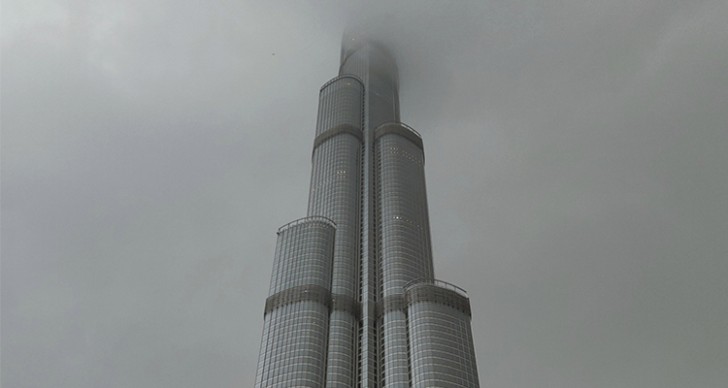Recently, the UAE Construction Industry has given us a lot of projects to talk about. The Burj Khalifa skyscraper, Dubai International airport, Louvre Abu Dhabi and Abu Dhabi International Airport Midfield Terminal Building are just some of the world-class projects that have marked the industry.
For today’s post, we have read the
UAE Construction Think Tank White Paper, and bring you their conclusions and recommendations. In the framework of UAE Centennial 2071, a long-term vision is vital to deliver the aims of the national strategy to strengthen the country’s reputation and establish itself as the most competitive nation in the world. The vision calls for the most modern, productive and technology-driven construction industry worldwide.
Even though the
construction sector is considered to be the
economic barometer of the Persian Gulf region, until now, it is more characterized by short-term thinking. That’s why one of the main topics of the white paper is also to stress the importance of greater collaboration between government, industry and academia in order to deliver change.
Challenges for UAE Construction Industry
Since 2014, the project spending has slowed down across the region which has resulted in cash flow concerns, an increase in contract disputes and a loss of skills. In the paper, they have detected a series of challenges and proposed what the government could do to accelerate innovation. The four main challenges identified were:
Lack of industry collaboration
Attracting and retaining talent
Weak culture of innovation
Lack of industry representation
According to MEED construction industry survey, the companies themselves identified low contracting margins and people’s behavior as the biggest barriers to innovation.

Image Source: UAE Construction Think Tank White Paper
Recommendations for UAE Construction Industry
All these challenges were addressed and paired with a recommended course of action that will hopefully ease the construction industry into the new era.
- To improve industry collaboration, the whitepaper recommends introducing standard contracts to seek to share risk and offer pain/gain opportunities between clients, consultants and contractors. Another improvement would be enforcing a Construction Contracts Act that codifyes the payment timeframe, adjudication and certification terms. Promoting a change of mentality is also necessary, as the lowest-price-wins model doesn’t reward quality, safety and innovation.
- To attract and retain talent, UAE should grant permanent and semi-permanent visas for professionals on the basis of experience and professional attainment. Provide a transparent pipeline of future projects, allowing contractors to counter the transient nature of construction contracts and better plan for their staff. Coordinate timing of government and government-related entity (GRE) projects to ensure countercyclical spending. It’s also important to bring the talent into construction from early on, which could be achieved by graduate recruitment programs in partnership with industry players. Establishing professional development bodies for technical workers and having a unified accreditation committee for built environment professionals is also important for talent management.
- To stimulate innovation in construction, the government should introduce incentive schemes to reward companies that deploy new technology on their projects. To encourage the use of emerging technologies the common standards and requirements for technology and data should be established. That would harmonize processes across all sectors and authorities. A patent system for innovative methods employed by a contractor on a project would also give the companies testing new technologies some future guarantees.
- To give construction a voice, there should be a development authority, like a Construction Industry Development Board that encourages continuous dialogue between the industry and authorities. Their task would be to help with setting standards and regulations, addressing disputes and other legal matters. Relevant accreditation bodies can also guide the workers on the training needed to secure job positions within the market. All in all, a more active association that engages with government and project clients will help to regulate the industry and maintain standards.
What can companies do?
If the change of culture and mentality is in a great deal influenced by public policies, it’s also interesting to take a look at how the companies themselves are trying to keep themselves up-to-date.
In the MEED construction industry survey, 55% of the participants indicated that they are investing in BIM and 31% in cloud-based project management.

Image Source: UAE Construction Think Tank White Paper

Image Source: UAE Construction Think Tank White Paper
As the main benefit of digital innovation in construction and project delivery, the contestants identified the efficiencies that speed up the project delivery.
Conclusions
As the UAE construction industry is waking up to the benefits of digital transformation, a long-term approach to innovation has been defined. BIM and other technological tools play a prominent role in this new era for construction and we can be certain that there will be many remarkable projects in the near and more distant future of the country.





